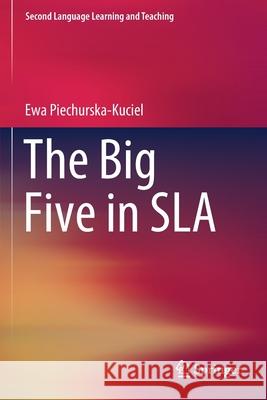The Big Five in Sla » książka
topmenu
The Big Five in Sla
ISBN-13: 9783030593261 / Angielski / Miękka / 2021 / 260 str.
The Big Five in Sla
ISBN-13: 9783030593261 / Angielski / Miękka / 2021 / 260 str.
cena 442,79
(netto: 421,70 VAT: 5%)
Najniższa cena z 30 dni: 424,07
(netto: 421,70 VAT: 5%)
Najniższa cena z 30 dni: 424,07
Termin realizacji zamówienia:
ok. 22 dni roboczych.
ok. 22 dni roboczych.
Darmowa dostawa!
Kategorie:
Kategorie BISAC:
Wydawca:
Springer
Język:
Angielski
ISBN-13:
9783030593261
Rok wydania:
2021
Ilość stron:
260
Waga:
0.36 kg
Wymiary:
23.39 x 15.6 x 1.4
Oprawa:
Miękka
Wolumenów:
01
Dodatkowe informacje:
Wydanie ilustrowane











